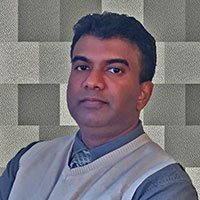Associate Dean, Teacher Education message
Welcome to Western Education
I am honoured to serve as the Associate Dean of Teacher Education at Western University’s Faculty of Education, where I oversee our Bachelor of Education (B.Ed.) and Advanced Studies in Professional Education (ASPirE) programs, under the leadership of our Dean, Dr. Donna Kotsopoulos.
Western Education is nationally recognized and globally respected, consistently earning top rankings from Times Higher Education, Maclean’s, and the Shanghai Rankings. These recognitions reflect not only the academic strength of our programs, but also the vibrant, innovative, and inclusive community that defines who we are.
Our 16-month, consecutive B.Ed. program features a distinctive structure: teacher candidates complete the first two terms on site and the final two terms online. This blended delivery model allows candidates to return to their home communities earlier, if they choose, and complete their remaining practicum placements in local school districts. The program includes three school-based practicums under the guidance of experienced mentor teachers, as well as an Alternative Field Experience (AFE) where candidates contribute to education-related work in community settings.
Through our ASPirE Program Office, we offer Additional Qualification (AQ) courses that support Ontario Certified Teachers in enhancing their skills, deepening their knowledge, and advancing their careers. We are also proud to offer the International Baccalaureate (IB) Educator Certificate program, which prepares teachers to thrive in IB schools around the world by fostering inquiry-driven and globally minded teaching practices.
At Western, we are committed to delivering a teacher education experience that reflects the highest standards of academic and professional excellence. Our programs are enriched by strong community partnerships, evidence-based pedagogical practices, and a faculty whose research and teaching have real impact in classrooms across Ontario and beyond.
Central to all our programs is a deep commitment to preparing thoughtful, knowledgeable, and socially responsive educators. We view teaching not only as a professional practice, but as a moral calling, one that demands a strong theoretical foundation, a critical understanding of context, and the ability to inspire, support, and advocate for every learner.
As Associate Dean, I take special pride in our faculty’s focus on equity, accessibility, and culturally and socially responsive education. We strive to prepare educators who are not only reflective practitioners, but also agents of change, and advocates for justice, student well-being, and systemic transformation. Whether through coursework, practicum placements, or ASPirE opportunities, our teacher candidates and professional learners are challenged to think critically, act ethically, and lead with compassion and kindness.
I invite you to explore our Bachelor of Education, ASPirE, and graduate programs to discover how we are shaping the future of education through research, teaching, community engagement, and a shared commitment to excellence.
Thank you for visiting Western Education.
Dr. Anton Puvirajah
Associate Dean, Teacher Education
Faculty of Education
Western University


